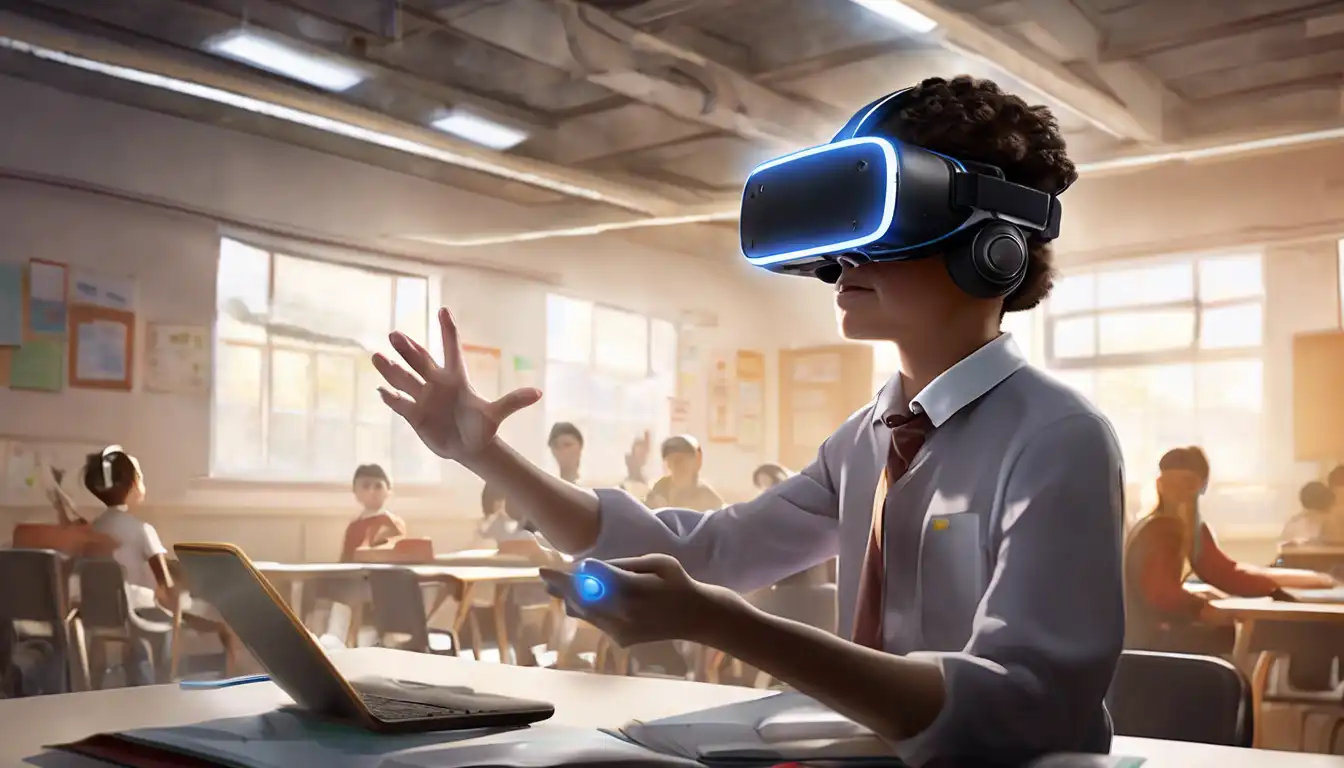The Transformative Impact of Virtual Reality on Learning and Skill Development
Virtual Reality (VR) technology has rapidly evolved from a futuristic concept into a practical tool in various sectors, including education and training. Its immersive nature offers unparalleled opportunities for experiential learning, making complex concepts easier to understand and skills quicker to acquire. This article delves into the potential of VR in revolutionizing educational methodologies and professional training programs.
Immersive Learning Experiences
VR creates immersive learning environments that can simulate real-world scenarios or fantastical worlds beyond our physical limitations. For students, this means the ability to explore ancient civilizations, dissect virtual frogs, or even travel through the human bloodstream. Such experiences not only enhance engagement but also improve retention rates by providing hands-on learning opportunities that are otherwise impossible or impractical.
Professional Training and Skill Development
In the realm of professional training, VR offers a safe and controlled environment for practicing high-risk skills. Surgeons can perform virtual operations, pilots can navigate flight simulations, and engineers can troubleshoot machinery without the real-world consequences of mistakes. This not only accelerates the learning curve but also significantly reduces training costs and risks.
Accessibility and Inclusivity
VR technology has the potential to make education more accessible and inclusive. Students with physical disabilities or those in remote locations can experience the same quality of education as their peers. Virtual classrooms can bring together learners from across the globe, fostering cultural exchange and collaboration without the need for physical travel.
Challenges and Considerations
Despite its benefits, the integration of VR into education and training is not without challenges. The cost of VR equipment and the need for technical support can be prohibitive for some institutions. Additionally, there is the question of content quality and the need for standardized curricula that leverage VR's capabilities effectively.
Looking ahead, the potential of VR in education and training is immense. As technology becomes more affordable and content more sophisticated, we can expect VR to become a staple in learning environments. The key to success lies in collaboration between educators, technologists, and policymakers to harness this potential responsibly and inclusively.
For more insights into how technology is shaping the future of education, explore our articles on innovative learning tools and the future of education.
